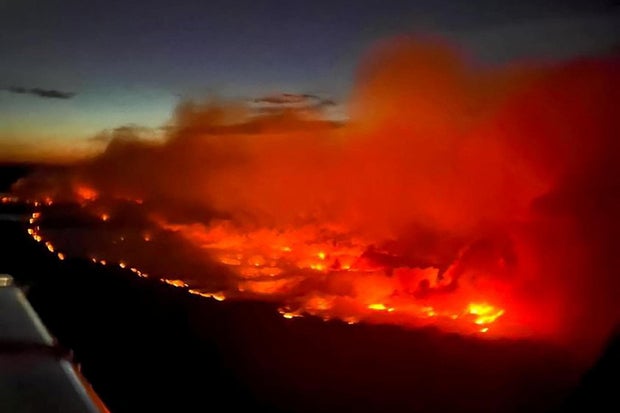Toronto – Wildfire season arrived in full force in western Canada, generating evacuation orders and warnings in several cities in British Columbia and neighboring Alberta due to the danger of uncontrolled fires. According to the BC administration latest report on the forest fire situationSince Friday, seven evacuation orders and five warnings have been issued in the province, forcing about 4,700 residents from their homes.
“The situation is evolving rapidly,” British Columbia Emergency Management Minister Bowninn Ma warned on Monday, as authorities said there were 130 active wildfires, 14 of which are considered out of control.
Canada’s 2023 wildfire season was the worst on record, with 6,551 fires ravaging nearly 46 million acres, from the West Coast to the Atlantic provinces and the Far North. The impact on the environment, especially air quality, in both Canada and the United States was profound. As expected2024 looks to be another devastating wildfire season, and disaster and climate experts have a good idea why.
Most of the fires now raging across Canada have actually been burning since the last fire season, having smoldered through the winter beneath accumulated snow.
Scientists say these blazes, sometimes called zombie fires, are a stark reminder of the impact of of Climate Change. Studies have linked winter fires to continued drought conditions amid the increasingly hot and dry springs Canada has experienced in recent years. Scientists say less precipitation and warmer winter temperatures mean fires can continue to burn in the dense layers of vegetation beneath the snowpack.
Sonja Leverkus, an ecosystem scientist from British Columbia who also works as a firefighter, told CBS News on Monday that the northeastern Canadian province has so many wildfires right now “because we are experiencing a severe drought for the third year in a row.”
She said drought conditions will likely make things worse before they get better.
Leverkus has been on the front lines of the battle against fires in her hometown of Fort Nelson, where she, her teammates and their communities are currently under evacuation orders.
Andrei Axenov/BCEHS
“Many of the current fires this week were 2023 wildfires that hibernated underground,” she said. “We are in a heavy spring, with low relative humidity, strong wind, heat and zero precipitation. Hence, forest fires.”
Bushfire expert Ben Boghean, commenting this week on the fire currently threatening the Parker Lake community in British Columbia said Sunday that last year’s severe drought conditions allowed fires to spread at breakneck rates this spring, and because of lower-than-normal snowpack, new fires are also emerging more easily.






















